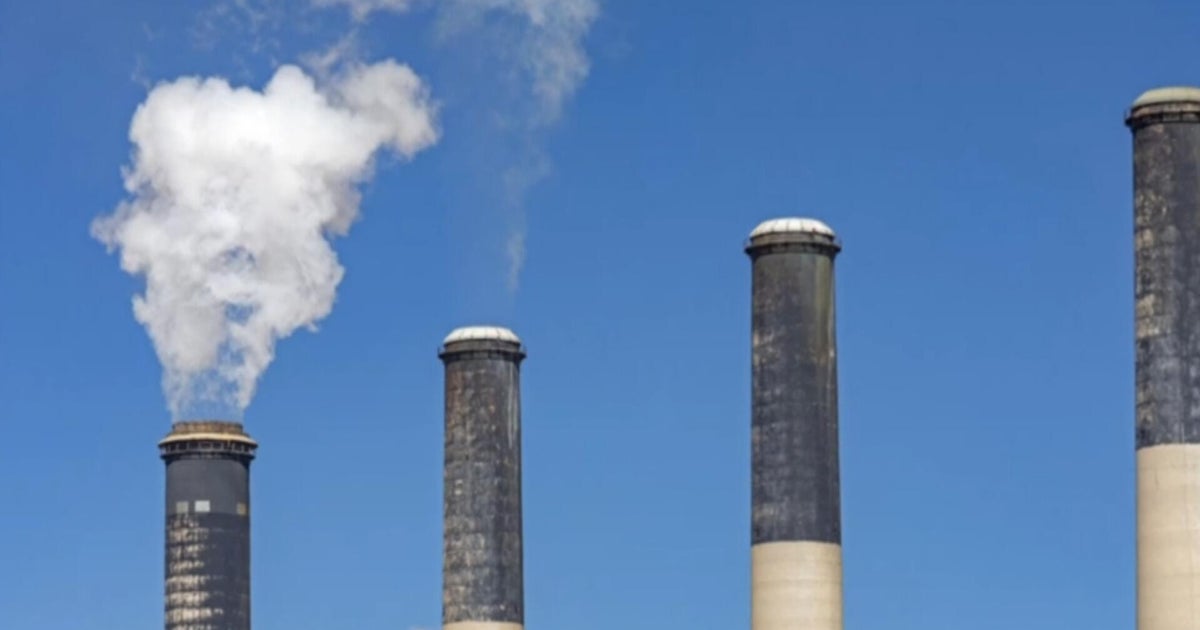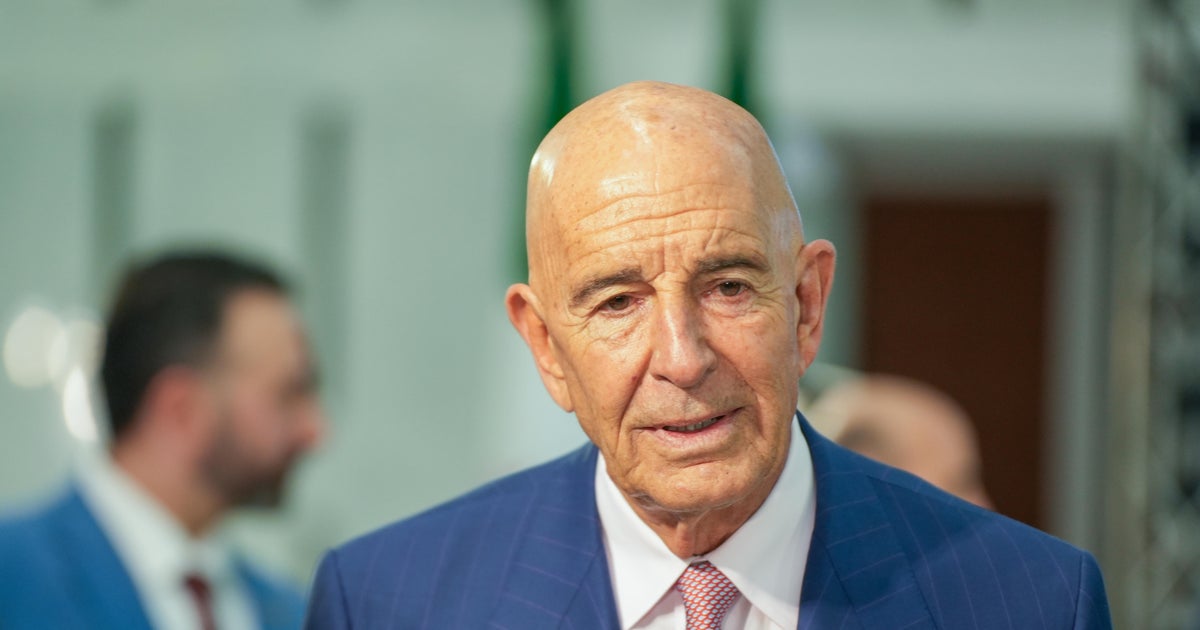Trump and Harris' views on abortion and IVF access, explained
Washington — Abortion is one of the issues that could drive voters' decisions in the November election, the first presidential contest held since the Supreme Court overturned Roe v. Wade two years ago and paved the way for 22 states to restrict access to the procedure. Going into the 2024 election, the two presidential nominees, Donald Trump and Kamala Harris, have talked about their views of and stances on abortion and and what the future might hold for abortion access if elected.
Democrats are hoping the issue of abortion access will galvanize voters to elect Harris, while Republicans have sought to frame the issue as one best left to the states, while facing questions about whether a federal abortion ban would be on the table if former President Donald Trump were elected to a second term.
An August CBS News poll found that 60% of voters believe abortion should be legal in all or most cases, and among women likely voters who want abortion to be legal, 76% support Harris.
Here is where Trump and Harris stand on abortion.
Donald Trump's stance on abortion
Trump has throughout the campaign had shifting views on abortion, frustrating social conservatives and anti-abortion rights groups that are pushing for a nationwide ban. The Republican nominee has repeatedly taken credit for the Supreme Court's reversal of Roe v. Wade in June 2022 and touted that three of the justices he appointed to the high court voted to unwind the constitutional right to abortion.
He has said the court's landmark decision means the issue is now left up to voters in the states.
"My view is now that we have abortion where everybody wanted it from a legal standpoint, the states will determine by vote or legislation, or perhaps both, and whatever they decide must be the law of the land," he said in a video posted to social media in April.
Trump has stopped short of backing a federal abortion ban, but said during a March radio interview that "people are agreeing on 15, and I'm thinking in terms of that."
During the first and perhaps only presidential debate between Harris and Trump on Sept. 10, Harris warned, "Understand, if Donald Trump were to be reelected, he will sign a national abortion ban."
Trump responded by saying, "It's a lie. I'm not signing a ban, and there's no reason to sign a ban, because we've gotten what everybody wanted, Democrats, Republicans and everybody else, and every legal scholar wanted it to be brought back into the states." But when asked by debate moderator Linsey Davis whether he'd veto a ban, he responded, "I won't have to," but did not say he would veto a ban if it were passed by Congress.
Davis tried again: "But if I could just get a 'yes' or 'no' because your running mate, JD Vance, has said that you would veto if it did come to your desk."
Trump again declined to say whether he'd veto a national ban, responding, "I didn't discuss it with JD, in all fairness."
Still, as Democrats, including Harris, have sought to tie Trump and Republicans to abortion restrictions enacted in 22 states after Roe was reversed, the former president has attempted to counter their attacks.
"My administration will be great for women and their reproductive rights," he declared on social media on Aug. 23, the morning after Harris delivered a speech accepting the Democratic presidential nomination that claimed Trump's second-term agenda includes limiting access to birth control, outlawing medication abortion and banning abortion nationwide.
The former president has also criticized some of the most restrictive state laws on abortion — namely a six-week ban in place in Florida, where he lives — and said he favors exceptions in cases of rape, incest or when the life of the mother is at risk. The former president called Florida's ban a "terrible thing and a terrible mistake."
He reiterated in an interview with NBC News in September that six weeks is "too short" and said he is "going to be voting that we need more than six weeks."
Trump's comments earned him swift backlash from conservatives, who criticized him for supporting a proposed amendment to the Florida Constitution that is on the November ballot. The measure would prohibit laws that restrict abortion before fetal viability, generally considered to be between 22 and 24 weeks of pregnancy.
Trump quickly backtracked amid the fallout and said he would be voting "no" on the abortion amendment, which, if defeated in November, would leave Florida's six-week ban in place.
Kamala Harris' stance on abortion
Harris has made abortion rights a focal point of her campaign and has worked to connect abortion restrictions enacted in more than 20 states to the Republican nominee, calling them "Trump abortion bans" in speeches from the trail.
In her keynote address at the Democratic National Convention accepting the party's presidential nominee, the vice president pledged to sign into law legislation that restores the federal right to abortion — if such a bill is passed by Congress.
"Ours is a fight for the future and it is a fight for freedom, like the freedom of a woman to make decisions about her own body and not have her government tell her what to do," she said during a campaign event in Savannah.
Harris' campaign website pledges that if elected president, "she will never allow a national abortion ban to become law. And when Congress passes a bill to restore reproductive freedom nationwide, she will sign it."
Access to IVF
Access to in vitro fertilization (IVF) services became a campaign issue after the Alabama Supreme Court ruled in February that frozen embryos created during the IVF process could be considered children. The decision threatened the availability of IVF services in Alabama and thrust access to fertility treatments into the national conversation, including among the presidential candidates.
Donald Trump's stance on IVF
Trump announced last month a new plan that would require the federal government to pay for IVF treatments or mandate insurance companies cover costs associated with IVF, which can cost tens of thousands of dollars per cycle.
Kamala Harris' stance on IVF
Harris, though, has pinned the blame for any threats to fertility treatments on Trump, calling him the "architect of this entire crisis." The vice president said the Alabama Supreme Court's ruling is a "direct result" of the U.S. Supreme Court's decision overturning Roe.
Harris has repeatedly said she supports a woman's right to make decisions about her body and family-planning, and lamented in her convention speech that since Roe's reversal, she has heard stories of couples who have had their IVF treatments cut off.







